Robert Reich
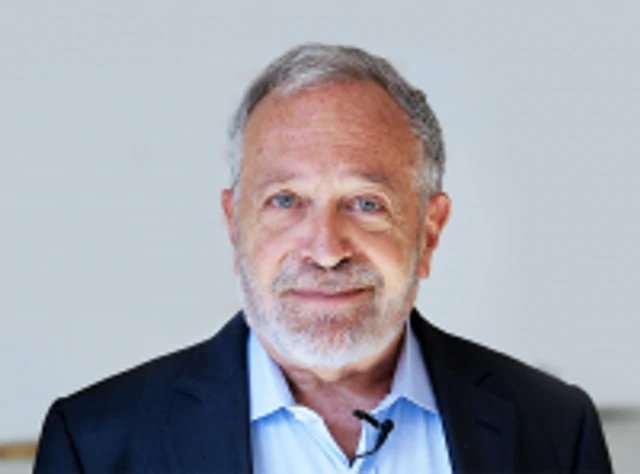
Robert Reich

| 22ndUnited States Secretary of Labor | |
|---|---|
| January 20, 1993 – January 20, 1997 | |
| President | Bill Clinton |
| Lynn Morley Martin | |
| Alexis Herman | |
| Personal details | |
| Born | |
| Political party | Democratic |
| Spouse(s) | |
| Children | 2, includingSam |
| Education | Dartmouth College(BA)University College, Oxford(MPhil)Yale University(JD) |
| Website | |
Robert Bernard Reich (/raɪʃ/;[1] born June 24, 1946) is an American economist,[2][3][4][5] professor, author, and political commentator. He served in the administrations of Presidents Gerald Ford, Jimmy Carter, and Bill Clinton. He was Secretary of Labor from 1993 to 1997. He was a member of President Barack Obama's economic transition advisory board.
Reich has been the Chancellor's Professor of Public Policy at the Goldman School of Public Policy at UC Berkeley since January 2006.[6] He was formerly a professor at Harvard University's John F. Kennedy School of Government[7] and professor of social and economic policy at the Heller School for Social Policy and Management of Brandeis University. He has also been a contributing editor of The New Republic, The American Prospect (also chairman and founding editor), Harvard Business Review, The Atlantic, The New York Times, and The Wall Street Journal
Reich is a political commentator on programs including Erin Burnett OutFront, CNN Tonight, Anderson Cooper's AC360, Hardball with Chris Matthews, This Week with George Stephanopoulos, CNBC's Kudlow & Company, and . In 2008, Time*]]magazine named him one of the Ten Best Cabinet Members of the century,[8] and* Wall Street Journal* in 2008 placed him sixth on its list of Most Influential Business Thinkers.[9] He was appointed a member of President-elect Barack Obama's economic transition advisory board.[10] Until 2012, he was married to British-born lawyer Clare Dalton, with whom he has two sons, Sam and Adam.[11][12]
He has published 18 books, including the best-sellers The Work of Nations, Reason, Saving Capitalism, Supercapitalism, Aftershock: The Next Economy and America's Future, and a best-selling e-book, Beyond Outrage. He is also chairman of Common Cause and writes his own blog about the political economy at Robertreich.org.[13] The Robert Reich–Jacob Kornbluth film Saving Capitalism was selected to be a Netflix Original, and debuted in November 2017, and their film Inequality for All won a U.S. Documentary Special Jury Award for Achievement in Filmmaking at the 2013 Sundance Film Festival in Utah.[14][15]
| 22ndUnited States Secretary of Labor | |
|---|---|
| January 20, 1993 – January 20, 1997 | |
| President | Bill Clinton |
| Lynn Morley Martin | |
| Alexis Herman | |
| Personal details | |
| Born | |
| Political party | Democratic |
| Spouse(s) | |
| Children | 2, includingSam |
| Education | Dartmouth College(BA)University College, Oxford(MPhil)Yale University(JD) |
| Website | |
Early life and career

Robert Reich, from United States Department of Labor, 1993
Reich was born in Scranton, Pennsylvania, the son of Mildred Dorf (née Freshman) and Edwin Saul Reich (1914–2016), who owned a women's clothing store. His family is Jewish.[16][17] As a child, he was diagnosed with multiple epiphyseal dysplasia, also known as Fairbank's disease, a bone disorder that results in short stature among other symptoms. This condition made him a target for bullies and he sought out the protection of older boys; one of them was Michael Schwerner, who was later a victim in the murders of Chaney, Goodman, and Schwerner by the Ku Klux Klan in 1964 for the registration of African-American voters. Reich cites this event as an inspiration to "fight the bullies, to protect the powerless, to make sure that the people without a voice have a voice".[18]
He attended John Jay High School in Cross River, New York, and Dartmouth College, graduating with an A.B. summa cum laude in 1968 and winning a Rhodes Scholarship to study Philosophy, Politics, and Economics at University College, Oxford.[19] While at Dartmouth, Reich went on a date with Hillary Rodham, the future Hillary Clinton, then an undergraduate at Wellesley College.[20] While a Rhodes Scholar at Oxford, Reich first met Bill Clinton, also a Rhodes Scholar. Although he was drafted to serve in the Vietnam War, he did not pass the physical as he was under the required minimum height of five feet.[21] Reich subsequently earned a J.D. from Yale Law School, where he was an editor of the Yale Law Journal. At Yale, he was classmates with Bill and Hillary Clinton, Clarence Thomas, Michael Medved, and Richard Blumenthal.[22]
From 1973 to 1974, he served as law clerk to Judge Frank M. Coffin, Chief Judge of the U.S. Court of Appeals for the First Circuit; and from 1974 to 1976 was Assistant to the U.S. Solicitor General, Robert Bork. In 1977, President Jimmy Carter appointed him Director of the Policy Planning Staff at the Federal Trade Commission.
From 1980 until 1992, Reich taught at the John F. Kennedy School of Government at Harvard University, where he wrote a series of influential books and articles, including The Next American Frontier and The Work of Nations. In The Next American Frontier he blamed the nation's lagging economic growth on "paper entrepreneurialism", which is the financial and legal gamesmanship that drained the economy of resources needed for better products and services.
In The Work of Nations, he argues that a nation's competitiveness depends on the education and skills of its people and the infrastructure that connects them, rather than on the profitability of companies headquartered within it. Private capital, he says, is increasingly global and footloose—while a nation's people—its human capital—constitutes the one resource on which a nation's future standard of living uniquely depends. He urges policy makers to make such public investments the cornerstone of economic policy.
Secretary of Labor
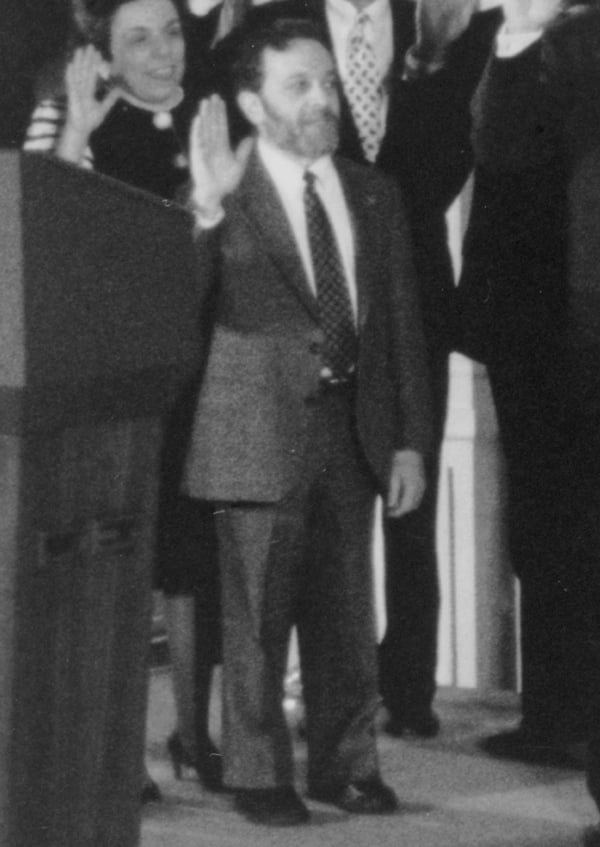
Reich in the East Room during the 1993 swearing-in ceremony for Clinton's cabinet
Bill Clinton incorporated Reich's thinking into his 1992 campaign platform, "Putting People First", and after being elected invited Reich to head his economic transition team.
Reich later joined the administration as Secretary of Labor. During his tenure, he implemented the Family and Medical Leave Act (FMLA), successfully lobbied to increase the minimum wage, lobbied to pass the School-to-Work Jobs Act, and to integrate all job-training and job-displacement programs so workers who lost their jobs could get access to all the help they needed to get new ones that paid at least as much as the old.
In addition, Reich used the office as a platform for focusing national attention on the need to help American workers to adapt to the new economy.
He popularized the term "corporate welfare"—arguing that the nation could get the money it needed to retrain people and move them from welfare to work by cutting "aid for dependent corporations".
He advocated that the country provide more opportunities for workers to learn technological skills.
After the Clinton administration

Reich speaking in 2009
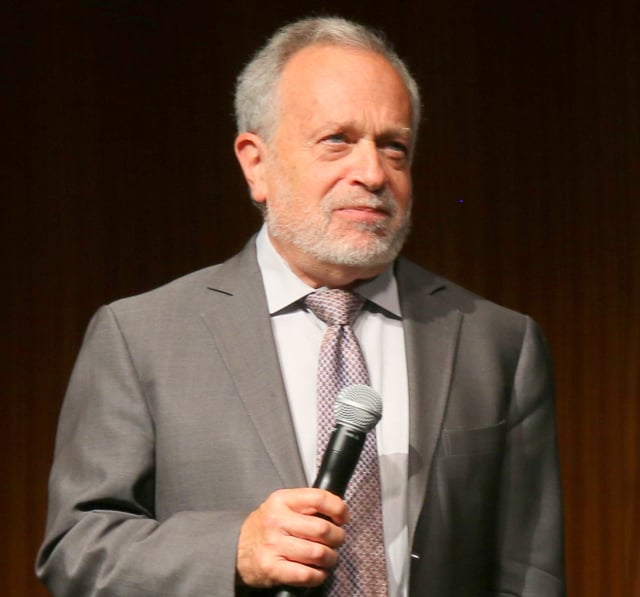
Reich speaking at University of Texas in 2015
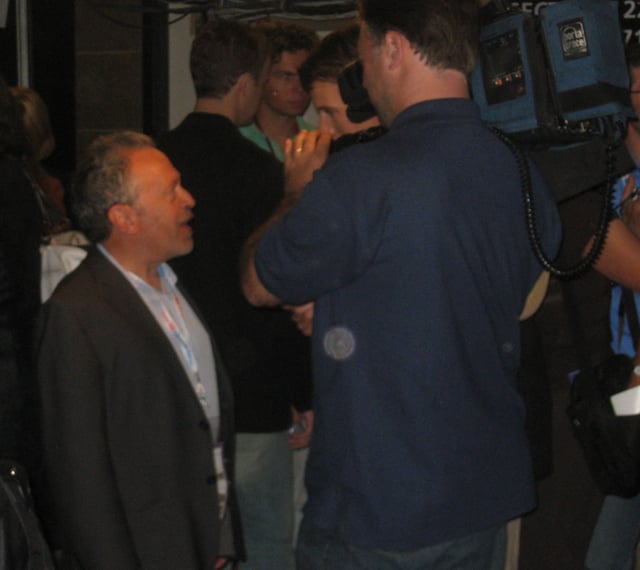
Reich being interviewed by the press during the 2008 Democratic National Convention
In 1996, between Clinton's re-election and second inauguration, Reich decided to leave the department to spend more time with his sons, then in their teen years.
He published his experiences working for the Clinton administration in Locked in the Cabinet. After publication of the book, Reich received criticism for embellishing events with invented dialogue. The paperback release of the memoir revised or omitted the inventions.[23]
Reich became a professor at Brandeis University, teaching courses for undergraduates as well as in the Heller School for Social Policy and Management. In 2003, he was elected the Professor of the Year by the undergraduate student body.[24]
In 2002, he ran for Governor of Massachusetts. He also published an associated campaign book, I'll Be Short. Reich was the first Democratic candidate for a major political office to support same-sex marriage. He also pledged support for abortion rights and strongly condemned capital punishment. His campaign staff was largely made up of his Brandeis students. Although his campaign had little funding, he came in a close second out of six candidates in the Democratic primary with 25% of the vote;[25] Shannon O'Brien, the first-place finisher, went on to lose the general election to Republican Mitt Romney.[26]
In 2003, he was awarded the Václav Havel Foundation VIZE 97 Prize, by the former Czech President, for his writings in economics and politics.[27] In 2004, he published Reason: Why Liberals Will Win the Battle for America, a book on how liberals can forcefully argue for their position in a country increasingly dominated by what he called "radcons", or radical conservatives.
In addition to his professorial role, he has been a weekly contributor to the American Public Media public radio program Marketplace, and a regular columnist for the American Prospect, which he co-founded in 1990.[28] He has also frequently contributed to CNBC's Kudlow & Company and On the Money
In early 2005, there was speculation that Reich would once again seek the Democratic nomination for Governor of Massachusetts.
He instead endorsed the then-little-known candidacy of Deval Patrick, who had previously served as Assistant Attorney General for Civil Rights in the Clinton Administration. Patrick won the party's endorsement, a three-way primary with nearly 50% of the vote, and the general election in November 2006.
In September 2005 Reich testified against John Roberts at his confirmation hearings for Chief Justice of the United States Supreme Court.
On January 1, 2006 Reich joined the faculty of UC Berkeley's Goldman School of Public Policy. Since then, he has taught a popular undergraduate course called Wealth and Poverty, in addition to his graduate courses.[29] Reich is also a Member of the Board of Trustees for the Blum Center for Developing Economies at the University of California, Berkeley.[30] The Center is focused on finding solutions to address the crisis of extreme poverty and disease in the developing world.[31]
In 2007 his book Supercapitalism: The Transformation of Business, Democracy, and Everyday Life
During the 2008 primaries, Reich published an article that was critical of the Clintons, referring to Bill Clinton's attacks on Barack Obama as "ill-tempered and ill-founded", and accusing the Clintons of waging "a smear campaign against Obama that employs some of the worst aspects of the old politics".[32]
On April 18, 2008, Reich endorsed Barack Obama for President of the United States.[33]
On April 3, 2009, Reich commented that published U6 employment figures indicated that the United States was in a depression.[34]
In 2010, his weekly column is syndicated by Tribune Content Agency.[35]
In September 2010, his book Aftershock: The Next Economy and America's Future was published. In it, Reich explained how America's widening inequality had contributed to the great recession and made it difficult for the economy to recover, by undermining the purchasing power of the middle class relative to the nation's productive capacity. In April 2012, his book Beyond Outrage was published as an e-book. It focused on why an increasing portion of the public felt the game was rigged in favor of those with wealth and power, why the "regressive right" was nonetheless able to persuade many that taxes should be lowered even further on corporations and the wealthy while many public services should be cut, and what average people could do to take back the economy and reclaim democracy.
In 2013, he teamed up with filmmaker Jacob Kornbluth to produce the documentary Inequality for All, based on his book Aftershock which won a Special Jury Award at the Sundance Film Festival.
In September 2015, his book Saving Capitalism: For the Many, Not the Few was published. In it, he warned that widening inequality would generate a blue-collar backlash that could take the form of a demagogue who blames immigrants and minorities for the growing economic stresses felt by the working class.[36]
On February 26, 2016, he endorsed Bernie Sanders for President of the United States.[37] After Sanders ended his campaign, Reich urged Sanders's supporters to back eventual Democratic nominee Hillary Clinton.[38] Since at least summer 2016, Reich has contributed an opinion column to Newsweek.[39][40]
In 2017, he again teamed up with Jacob Kornbluth to produce the documentary Saving Capitalism, based on his book of that name. Netflix chose the film to be a Netflix Original Documentary. In the documentary, Reich says the election of Donald Trump has driven resentment on the part of the American working class that the prevailing capitalist economic system no longer worked for them. Reich characterized the common fundamental beliefs about capitalism to be false: the first that free markets exist outside of government intervention, and the second that capitalism can be regarded as inherently good or bad for the majority. Instead, he argues that the choice faced by policymakers was about the nature of government intervention, and the performance of the capitalist system for the majority was a function of the rules governing it, rather than the system itself. Reich posits that large corporations began in the late 1960s to use financial power to purchase influence among the political class and consolidate political power, highlighting in particular the influence of the 2010 Citizens United ruling that allowed corporations to contribute to election campaigns. In the documentary, he advocates for grassroots political mobilization among working class Americans to countervail the political power of corporate America.[41]
In February 2017, Reich stated that he would not rule out that violence at UC Berkeley against Donald Trump supporter Milo Yiannopoulos was a right-wing false flag for Trump to strip universities of federal funding. This idea was described as "phantasmagorical" by The Washington Post.[42]
In February 2018, his book The Common Good was published. In it, he argued that America's national identity did not derive from skin color, ethnicity, Christianity, or other nativist ideas, but from the ideals of equal political rights and equal opportunity found in the Constitution and Bill of Rights. He called for a new patriotism centered on what Americans owe one another as members of the same society.
Political stances
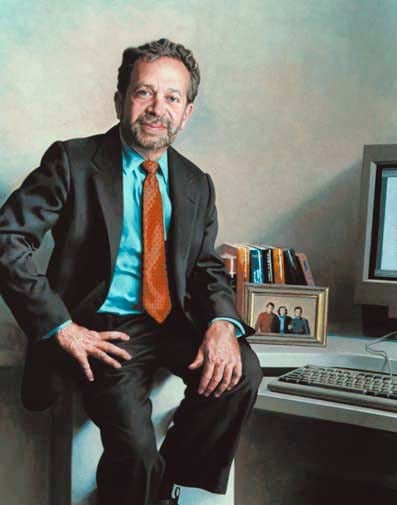
Official Department of Labor portrait of Robert Reich
In an interview with The New York Times, he explained that "I don't believe in redistribution of wealth for the sake of redistributing wealth. But I am concerned about how we can afford to pay for what we as a nation need to do [...] [Taxes should pay] for what we need in order to be safe and productive. As Oliver Wendell Holmes once wrote, 'taxes are the price we pay for a civilized society.'"[43]
In response to a question as to what to recommend to the incoming president regarding a fair and sustainable income and wealth distribution, Reich said: "Expand the Earned Income Tax Credit—a wage supplement for lower-income people, and finance it with a higher marginal income tax on the top five percent. For the longer term, invest in education for lower income communities, starting with early-childhood education and extending all the way up to better access to post-secondary education."[43]
Reich is pro-union, saying: "Unionization is not just good for workers in unions, unionization is very, very important for the economy overall, and would create broad benefits for the United States."[44][45] He also favors raising the federal minimum wage to $15/hr across three years, believing that it will not adversely impact big business, and will increase higher value worker availability.[46]
Social media

What's the Fed? Reich explaining the Federal Reserve
In 2013, with Jacob Kornbluth, Reich founded Inequality Media, which produces videos, live interviews on Facebook, portions of his undergraduate class at Berkeley, and long-form videos.
The purpose is to educate the public about the implications of the widening inequalities of income, wealth, and political power.
Reich and Kornbluth have produced more than 90 videos of two minutes each about the economy and current events, that have been watched by more than 50 million people.
Since shortly after the 2017 inauguration Reich began producing a "Resistance Report" program, offering contextual analysis of latest White House and Cabinet activities, typically a 15- to 30-minute presentation, available on social media sites like Facebook and YouTube.[49]
Personal life
Reich married Clare Dalton in 1973, and they have two sons, Sam, an American producer, director, writer, actor, and performer, and Adam, a sociology professor at Columbia University. They divorced in 2012.[11]
Academic positions
Chancellor's Professor, Goldman School of Public Policy, University of California, Berkeley
Maurice B. Hexter Professor of Social and Economic Policy, Florence Heller Graduate School of Public Policy and Management, Brandeis University
Professor, John F. Kennedy School of Government, Harvard University
Political positions
List of affiliations
National Governing Board Member, Common Cause, Washington, D.C.,[52] elected 1982
Advisory Board, General Accountability Office, Washington, D.C.[6]
Contributing editor and co-founder, The American Prospect[53]
Board of Directors and co-founder, Economic Policy Institute, Washington, D.C.[54]
Advisory Board, Blum Center[55]
National Advisory Board, National Institute for Civil Discourse (NICD), University of Arizona[56]
Awards
Galbraith-Schlesinger Award for Lifetime Achievement, Americans for Democratic Action, June 2009.
Outstanding Mentorship of Graduate Student Instructors, University of California at Berkeley, 2009.
Bruno-Kreisky Award, best political book of year (Supercapitalism), 2009.
Vaclav Havel Prize, Prague, October 2003.
Distinguished Citizen Scholar Award, University of Massachusetts at Amherst, 2003.
Nelson Rockefeller Distinguished Public Service Award, Dartmouth College, 2002.
Teacher of the Year, Brandeis University, 2001.
Louis Brownlow Award (best book on public administration), National Academy of Public Administration, 1984.[6]
Books
2018: The Common Good ISBN 978-0525520498
2017: Economics in Wonderland ISBN 978-1683960607
2015: Saving Capitalism: For the Many, Not the Few ISBN 978-0385350570
2012: Beyond Outrage: What Has Gone Wrong with Our Economy and Our Democracy, and How to Fix It ISBN 978-0345804372
2010: Aftershock: The Next Economy and America's Future ISBN 978-0-307-59281-1 (updated edition 2013)
2007: Supercapitalism: The Transformation of Business, Democracy, and Everyday Life ISBN 0-307-26561-7
2004: Reason: Why Liberals Will Win the Battle for America ISBN 1-4000-7660-9
2002: I'll Be Short: Essentials for a Decent Working Society ISBN 0-8070-4340-0
2000: The Future of Success: Working and Living in the New Economy ISBN 0-375-72512-1
1997: Locked in the Cabinet ISBN 0-375-70061-7
1991: The Work of Nations: Preparing Ourselves for 21st Century Capitalism ISBN 0-679-73615-8
1990: Public Management in a Democratic Society ISBN 0-13-738881-0
1990: The Power of Public Ideas (editor) ISBN 0-674-69590-9
1989: The Resurgent Liberal: And Other Unfashionable Prophecies ISBN 0-8129-1833-9
1987: Tales of a New America: The Anxious Liberal's Guide to the Future ISBN 0-394-75706-8
1985: New Deals: The Chrysler Revival and the American System (with writer John Donahue) ISBN 0-14-008983-7
1983: The Next American Frontier ISBN 0-8129-1067-2
1982: Minding America's Business: The Decline and Rise of the American Economy (with Ira Magaziner) ISBN 0-394-71538-1
Plays
Milton and Augusto (reading, University of California Berkeley, Center for Latin American Studies, September 2013)
Public Exposure (East Coast premier, Wellfleet Harbor Actor's Theater, June 2005; West Coast premier, Santa Rosa Theater, June 2008)[6]
Filmography
These documentaries, and additional social media movies, have been made in collaboration with Jacob Kornbluth.
2013: Inequality for All
2017: Saving Capitalism
See also
2008–09 Keynesian resurgence
Journal of Women, Politics & Policy – Reich sits on the editorial board[57]
The Trap (TV series), BBC documentary featuring Reich